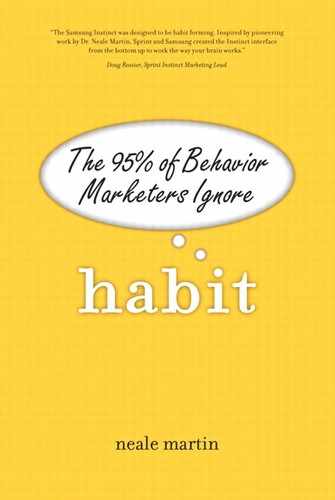Conclusion
Every marketplace is controlled by the habits of its customers. Incumbents maintain their position only as long as their customers maintain their habitual behavior. New entrants can only succeed if they supplant the entrenched unconscious behavior of one or more existing segments or by creating new habits thus creating new markets.
Some of our most entrenched habits are undergoing profound transformations. We no longer read the daily paper religiously (as the stock price of most dailies attest). Cell phones have replaced landline phones for millions, and a new generation views email as old-fashioned. Even carbonated beverage sales are experiencing a persistent 2% annual decline.
Yet each of these major shifts, which seem so revolutionary, occurred over time as neural circuits in the habitual mind became primed to reach for the cell phone instead of a landline or a bottle of water instead of a soda. The Internet makes it possible for companies like YouTube, MySpace, and Facebook to achieve billion dollar capitalizations in a matter of months, but their success is inexorably linked to the power of social networks to create new habits.
Hopefully this book has made the case for a major overhaul of marketing based on a better understanding of how our brains work. But the true value of Habit will come from managers rethinking their approach to creating and maintaining relationships with their customers. By understanding how to design products, choose distribution channels, set prices, and craft messages for both the habitual as well as the executive minds, it is possible to create unconscious customer loyalty—the most important asset any company can own.
